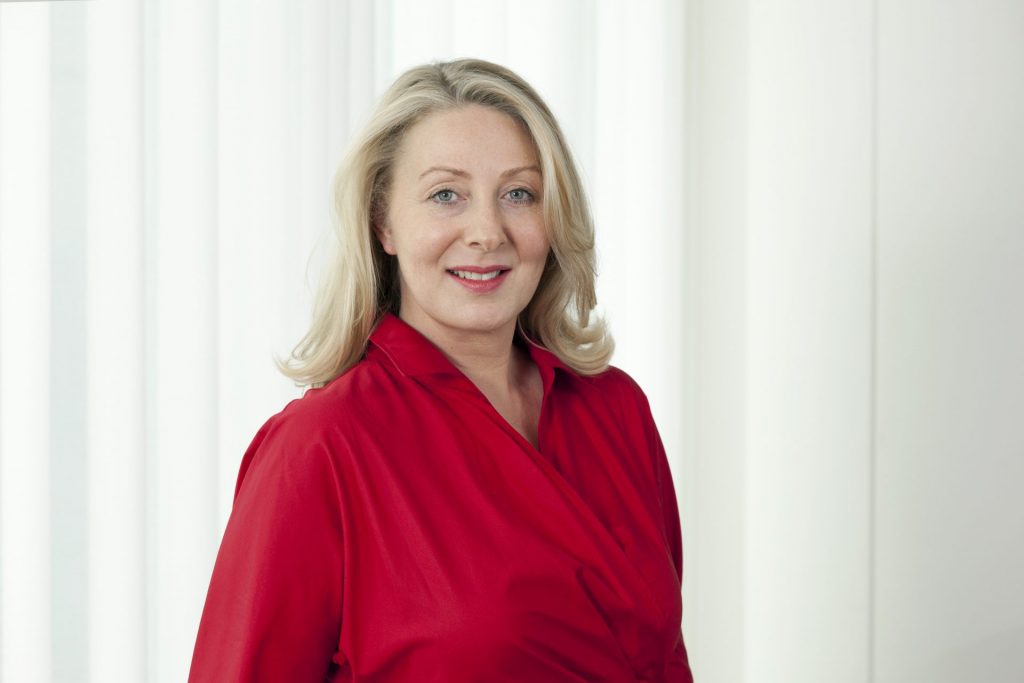From modelling to consultancy and technology, Sheridan Ash has experienced a varied career. Here she explains how her MBA helped her build her confidence and make it to the next leadership level
Tell us about your current role and your career history.
I’ve worked for PwC for around 10 years in technology roles and am currently lead on technology innovation.
I have a team that works across the business to identify and develop new technology-enabled products and services for our clients. I also lead PwC’s Women in Technology programme to attract, retain and advance women in tech.
I had an unusual start to my career and made a number of career changes. Leaving school at 16 with undiagnosed dyslexia, I first worked as a fashion model and trod the catwalks in London, Paris and Milan. I also became a single mum early on and knew I needed a longer-term career, so I worked on my dyslexia, went back to school and eventually gained a degree in psychological sciences that landed me a career in the pharmaceutical industry.
I learnt a lot but soon found myself rather bored and not very challenged and I wanted to work more on the business sides of things so decided to explore doing an MBA. This led me to Imperial College.
After graduating I worked at Accenture. Since my graduation I’ve overseen countless large scale, often global, technology programmes, for health companies and the government and advising on strategy. I joined PwC in 2010, and have been in my current position since 2016, reporting directly to the Board member for technology and investments.
When and where did you achieve your MBA?
I applied to the MBA programme at Imperial College Business School in 2002. As I have dyslexia, which went undiagnosed as a child, I knew that I would struggle with the entry examinations, but I was determined to apply for the MBA programme at Imperial, and so reached out to the Dean who met with me and, having made my case, I was allowed to enter the programme.
What prompted you to embark on an MBA?
I was at a stage in my career where I knew that I wanted to go to the next level, and an MBA is the way to do that.

I knew there would be challenges I would face because of my dyslexia, but I was determined to succeed. As it turned out, there was an incredible amount of support available to me, not only from help being in place for those that suffer with dyslexia, such as extra time on exams, and the faculty were really helpful.
What is the most interesting thing you learnt from your MBA?
The MBA course sparked my interest in technology. This fascination and love for tech literally changed my outlook on my career and has been the core focus of my work ever since.
Your background is in pharmaceuticals, but you used your MBA to make a career change – how did you find this transition and how did the course equip you for this?
The MBA broadened my skills and led to my interest in technological innovation and since then my career in tech has really flown.
How has the MBA made a difference in your life? In particular, your career path and leadership journey?
The MBA accelerated my progress into leadership, and gave me more confidence. It’s because of this confidence that I have gone on to found and lead a national initiative called Tech She Can, encouraging girls and young women into technology careers. Also I still remain in contact with my MBA classmates, and we have a very strong network.
Do you feel optimistic that business leaders have the agility to thrive in adversity? How does an MBA-level education support them in rising to the challenge?
If you are already a flexible and resilient person then an MBA can help you develop the managerial and people skills around these characteristics.
What would be your advice to someone else considering an MBA?
Do your homework. Look at the quality of the faculty. Think about the brand. Employers are more interested in where you got your MBA from than whether you simply have an MBA. Choosing Imperial for me was an excellent choice as it has a world-class brand, great faculty and elective courses.



